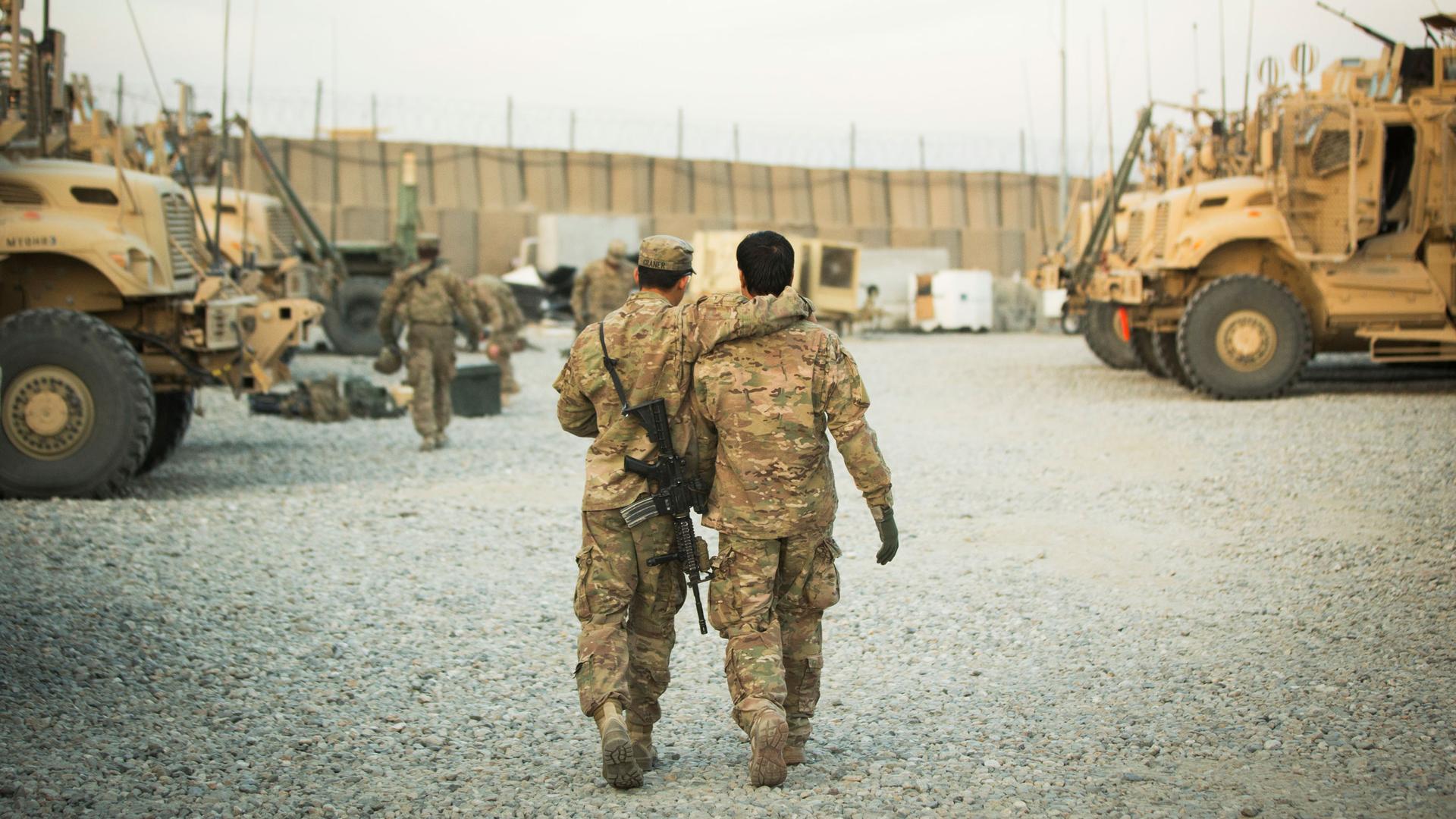The US promised thousands of foreign interpreters special immigrant visas. Now they’re trapped.
A US soldier from the 3rd Cavalry Regiment walks with the unit’s Afghan interpreter near forward operating base Gamberi in the Laghman province of Afghanistan.
Last Tuesday night was rough for Muhammad Kamran. The electricity in the house in Pakistan where he and his family are hiding was cut, and he estimates it was over 100 degrees Fahrenheit that night. His four young daughters were too hot to sleep and kept crying. But their crying could put the family in danger, so Kamran spent the night fanning each of his girls with a book, trying to get them cool enough to sleep.
He was lucky to share the night with his children. Kamran, a former interpreter for the United States Army, fled with his family from his native Afghanistan due to threats from both the Taliban and villagers. The threats were related to his work with the US. The family now lives illegally and in constant fear of being discovered and sent back to Afghanistan, where Kamran believes they would face near-certain death. Sometimes he has to sleep in the desert to avoid police raids, bribes and beatings.
Related: Translators who worked for the US military in Iraq wonder if their American dream is slipping away
Kamran became a translator for the US military when he was 18 because he wanted to do something good for Afghanistan, he said. He spent a decade with American troops, living and working directly alongside them. But now, he is one of the thousands of interpreters who have been left behind and are in danger because of their service to the US.
“Ten years I spent with the US Army. … I was working with them as a brother and they were calling me brother. I was a part of their mission and I was an important part of their mission.”
“Ten years I spent with the US Army,” he said during a phone interview. “I went with them on a lot of patrols, a lot of missions, a lot of fights, and I spent the night and days in the mountains with them, in small holes with them, in the bases, everywhere, in the villages, in cold weather and hot weather. But I was working with them as a brother and they were calling me brother. I was … an important part of their mission.”
Legislation passed in 2008 was supposed to provide a pathway to safety for translators and interpreters who serve alongside American forces in Iraq and Afghanistan by granting them Special Immigrant Visas (SIVs) to the US after their service. But due to security review slowdowns, President Donald Trump’s travel ban, and the demise of the Iraqi SIV program, hundreds of thousands of translators are left behind in dangerous — and even deadly — situations.
Related: Iraqi translators who served the US military are desperate for an exemption to Trump’s travel ban
Last week, their safety came under threat again when Trump revealed the US was pulling out of peace talks with the Taliban — the same group many of these translators face threats from on a regular basis.
“I think there’s obvious reasons that we should be wary of trusting the Taliban to protect these people,” said Adam Bates, an attorney for the International Refugee Assistance Project (IRAP), referring to translators. IRAP represents former US military translators in obtaining the SIVs they were promised to come to the United States.
Congressmembers, interpreter advocates, and veterans claim that under the Trump administration, the US is foregoing those promises made to wartime allies like Kamran. The number of translators granted admission to the US over the years has dropped dramatically, leaving their safety and US foreign security in limbo.
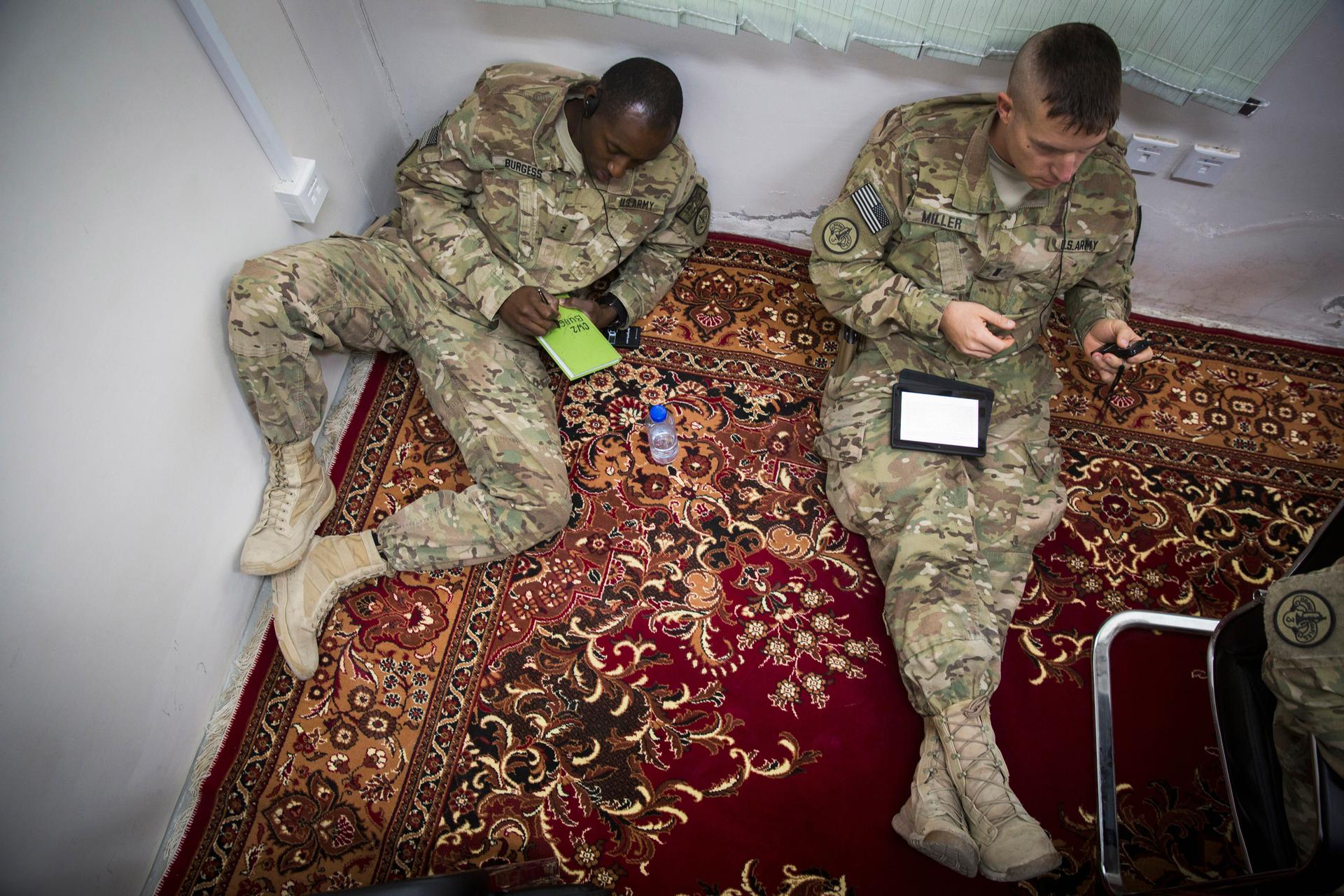
A tale of two SIV dreams
Over 7,000 miles away from Kamran, in Wilmington, Delaware, another former Afghan translator has been spending his nights with his newborn baby boy. Sadiq M., who requested to use only his first name out of concern for his safety, worked as an interpreter for the US military for seven years because he also believed he was doing something good for Afghanistan. But then his wife and father were threatened because of his work. The threats continued even after several moves, so he applied for an SIV.
Though the process took him about three years, Sadiq, his wife Maryam, and their two young girls — now ages 10 and 4 — arrived safely in the US about 2 1/2 years ago. Their life in the US is a translator’s ideal: a house with chairs on the porch, happy kids sharing toys, a steady job and most importantly, a feeling of security.
“We have built up a very good life, we own a house and have a mortgage, we bought a car, I have a job, the kids are in school, they know everything, they know so much, they are exactly like the kids in America,” Sadiq said during a phone interview.
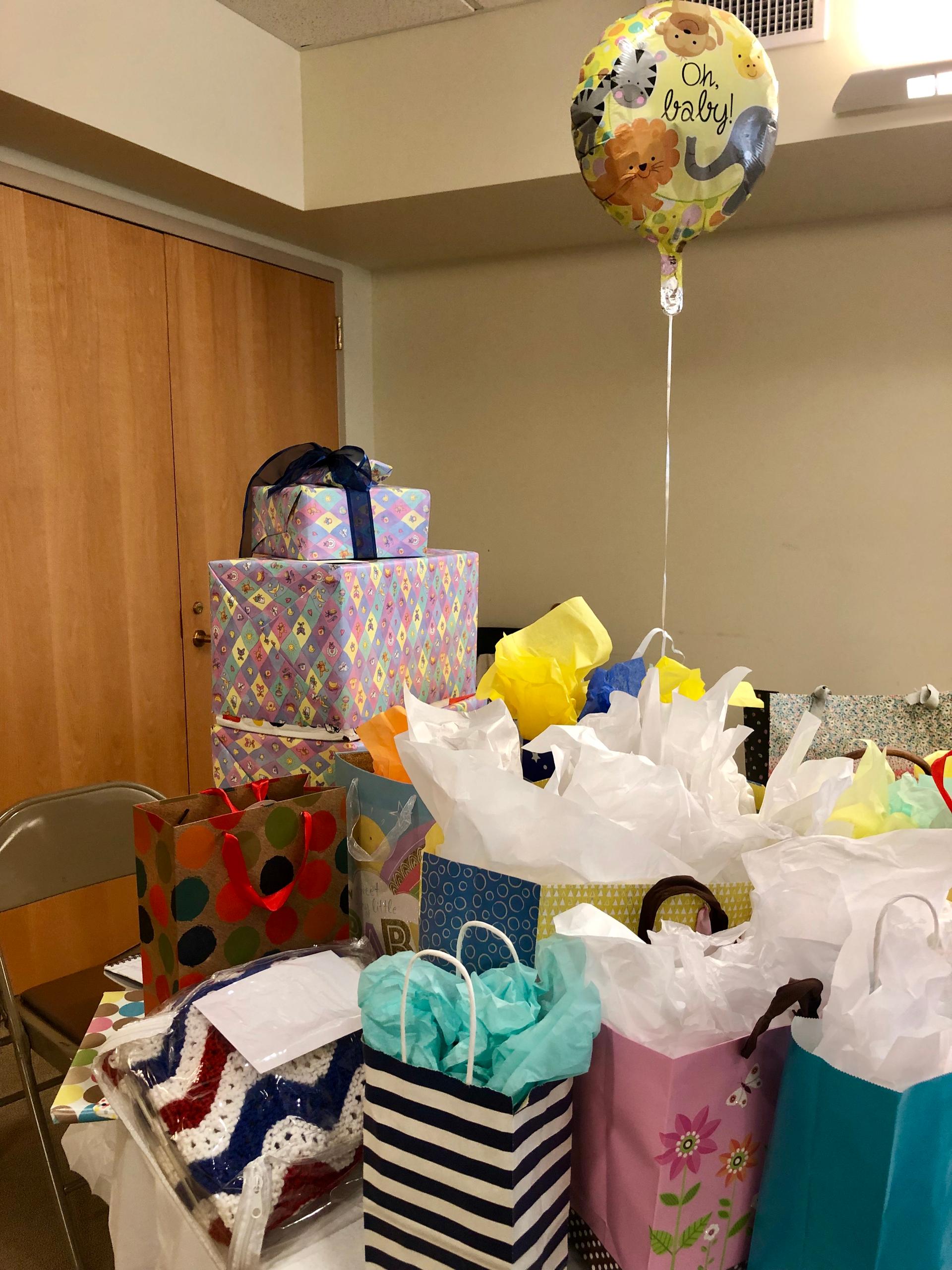
Within six months of arriving to the US, the family was off of food stamps. Since then, both Sadiq and Maryam have gotten off Medicaid. He hopes to soon remove his daughters from Medicaid, releasing his family altogether from government aid and supporting them from his own work.
The family has received endless support from multiple organizations, including the Jewish Family Services and a Presbyterian church. Their healthy baby boy, the first American citizen of the family, was born the second week of September.
When put side-by-side, Sadiq and Kamran’s stories offer stark contrasts of when the system works and when it doesn’t.
Related: Visas are running out for the US military’s Afghan interpreters
Kamran, now 35, has spent the past four years trying to get a US visa, but his applications have been turned down for unspecified “security concerns.” United States Citizenship and Immigration Services (USCIS) also turned down an application for his daughter, who at the time was 4 years old. USCIS declined to comment on this story or Kamran’s case.
“I had everything and I lost everything,” Kamran said. “And finally I came to the place … where every month, every week, every day I am facing the problems. My kids are just alive, but they are facing problems.”
In general, an SIV applicant must be able to show they worked with US troops for two years and are now under threat because of their service. Then they undergo a 14-step application process.
The legislation demands that these visas be processed in nine months. But by the State Department’s own admission, it takes at least a year and a half. According to Jason Gorey, the executive director of No One Left Behind, a nonprofit organization that focuses on SIV cases, the average case takes closer to 2 1/2 years.
When asked about the decline and backlog, a spokesperson from the State Department said that they are working closely with US government partners to resolve the issue and accelerate SIV processing, while “maintaining national security as our highest priority.”
“The Department of State has the highest respect for the men and women who have taken enormous risks to support our military and civilian personnel in Afghanistan and Iraq. We take these threats very seriously, and we are committed to providing efficient and secure SIV processing while maintaining national security as our highest priority,” the State Department spokesperson said. “We have increased the resources dedicated to SIV processing and have undertaken steps to streamline the process at every application stage.”
According to a letter sent by Congress on March 8, 2019, State Department data shows that 1,649 Afghan SIVs were issued in 2018, a 60% decrease from the 4,120 visas issued in 2017.
Meanwhile, the Iraqi SIV program closed in 2014. Currently, there are still approximately 200 applicants remaining in the Iraqi SIV pipeline. According to Gorey, 2014 was a particularly difficult time for the program to close, because there were likely thousands of Iraqis who qualified for SIVs but were functioning members of Iraqi society and not at risk, so did not apply. Then ISIS began to take over Iraq, and many translators’ lives were thrust into peril.
Barakat Ali Khalaf faced this particular issue. Khalaf, a famous Yazidi singer, worked as a translator in Iraq for about four years. During his service, he loved to entertain troops during their downtime. After the US withdrew from Iraq at the end of 2010, Khalaf returned to his hometown, Sinjar. He was working for a bookshop when ISIS attacked the area. He and his family fled on foot through the mountains, Khalaf said. By the time he wanted to apply for his SIV, the program was closed. Now, his wife has kidney stones and one of his daughters is paralyzed from cerebral palsy. Sinjar has since been destroyed by ISIS, so his family cannot return home.
Related: Yazidi women still fear ISIS months after their defeat
The Iraqi program was replaced with the US Refugee Admissions Program P-2 Direct Access Program. But while the number of slots for Afghan SIVs is allocated outside of the nation’s refugee cap, the P-2 Direct Access Program is within the cap, meaning Iraqi translators who served with the military are now applying for a limited number of visas designated for all Iraqi refugees. Fifty-one Iraqi P-2s were admitted in 2018, and though that number has risen to 191 in 2019, it is still far below the 3,000 US-affiliated Iraqis admitted in 2017.
Currently, the backlog of Iraqis waiting for P-2 visas is more than 100,000, as reported by Reuters. Khalaf applied through this program and has been waiting for about three years for a response.
Extreme vetting
More intensive security reviews and extreme vetting, due to the third iteration of Trump’s travel ban, have also affected both the Iraqi P-2 and the Afghan SIV programs. Plus, depending on how long it has been since the translator held the job, it can also be time-consuming to verify that certain communication or contact with suspicious groups or individuals was due to the translator’s job.
“They’ve expanded the size of the haystack in which you’re still searching for a needle, but they’ve reduced the capacity to do that,” said Nazanin Ash, vice president of global policy and advocacy at the International Rescue Committee.
All this has led to a dramatic slowdown in admissions for translators from both countries in 2018, with Iraq getting hit harder. Only two visas were issued to Iraqis who worked as interpreters in the military in 2018, according to NBC, and overall, the number of Iraqi refugees admitted to the US has declined from 9,880 in 2016 to 140 in 2018.
“The USRAP [United States Refugees Admissions Program] will continue to process and screen US-affiliated Iraqis for possible resettlement to the United States while prioritizing the safety and security of the American people,” a State Department spokesperson said. “Per Executive Order 13780, additional vetting procedures are enabling departments and agencies to more thoroughly review applicants and identify potential threats to public safety and national security.”
Considering these translators have already been vetted by the US military, some question the necessity of these extreme vetting procedures.
“It starts to get unreasonable to suggest we need even more vetting and that vetting needs to be so robust that essentially Iraqi admissions have dropped to nothing.”
“Because of who these people are, in order to qualify, they were already vetted to US military satisfaction to let them work with soldiers or on bases … security concerns there are much more acute and these people were sufficiently vetted to do the work they were doing for the US government — and then they were vetted through the former SIV program,” Bates of IRAP said. “It starts to get unreasonable to suggest we need even more vetting and that vetting needs to be so robust that essentially Iraqi admissions have dropped to nothing.”
‘We are still waiting, still waiting…’
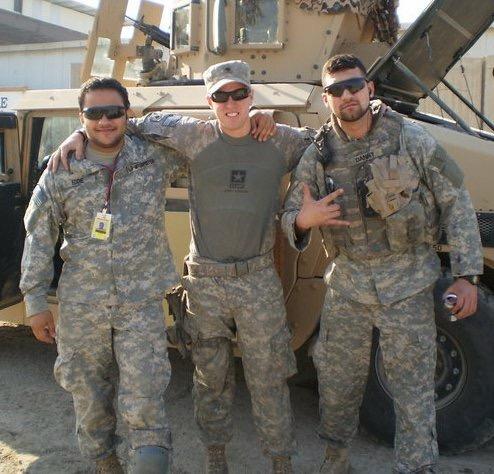
The stories of those affected by additional security reviews and extra vetting are seemingly endless, with some translators feeling disheartened, desperate or worse.
There’s Mike Ranger, an Iraqi Christian who goes by the name given to him by fellow US servicemen. In 2013, he applied for an Iraqi SIV before the program closed and was approved in 2016. He sold everything in preparation for his family’s move to the States. But just one week later, he received notice he was back under “security review.” To this day, he is still under review.
“I am used to living this life, we are still waiting, still waiting,” he said during a phone interview. “I hope one day it will change.”
Or take Zakir, who is currently in hiding in his native Afghanistan after three years of service to the US Army and Marines. He asked to use just one name out of safety concerns. He’s received threats from the Taliban, and he knows other translators who have been killed because of their service. Therefore, he said, he doesn’t leave his house. His visa application was approved in 2014 but then later denied. He has since appealed to no avail. He spends his days distracting himself from constant fear and boredom by watching old American movies. He told The World he has PTSD and frequent suicidal thoughts.
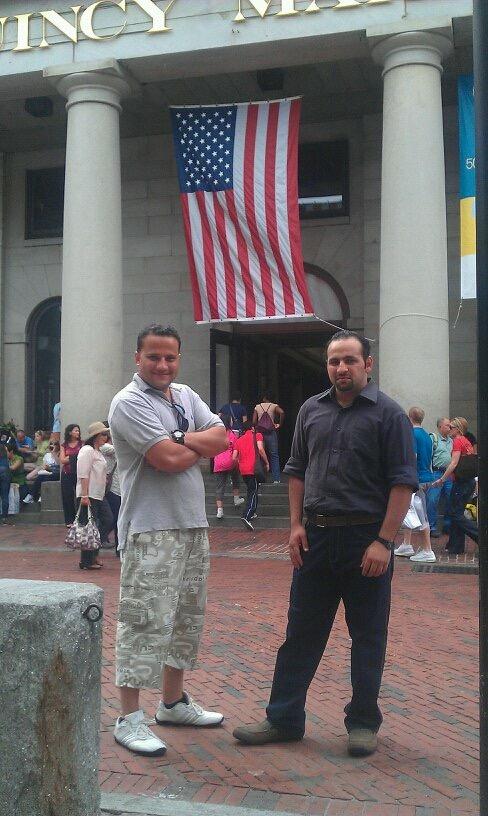
Families of translators are negatively affected by these procedures too, including the family of Wisam and Khalid al-Baidhani, brothers who served as translators for the American military in Iraq in the early 2000s. Khalid said he was shot in the face leaving the US base one night. He recovered and went back to work for the US. Meanwhile, Wisam received a threat in the form of a bullet wrapped in a note that said, “This is for your heart if you continue working for them.” Their uncle, also an interpreter, was executed and his body tossed in a dumpster, Khalid told The World during a phone interview. Wisam and Khalid made it to America and are now citizens, but their family, also guaranteed safety through the SIV program, has been stuck in Iraq for a decade.
In 2016, the family was approved for resettlement. But the night before they were supposed to leave Iraq, their visas were revoked and denied. They appealed and were conditionally approved on June 6, 2017. Since then, there has been no additional action on the part of the Department of Homeland Security, according to a letter addressed to DHS and signed by members of Congress who have taken an interest in the Baidhanis because of their belief that the US is not honoring the promise made to interpreters.
“We are the bridge, the translation, between the US army and the Iraqi people there. That’s it. And what happened? I get shot in my face, and in my hand, I have nerve damage, I can’t hear in my left ear, I can’t close my left eye, because of that.”
“We are the bridge, the translation, between the US army and the Iraqi people there. That’s it. And what happened? I get shot in my face, and in my hand, I have nerve damage, I can’t hear in my left ear, I can’t close my left eye, because of that,” al-Baidhani said. “Even though I stood up and I continued the mission … what I want is to bring [my family] over [here].”
Risk to US soldiers abroad
On top of the day-to-day heartache and fear these translators face, reneging on SIVs also puts US foreign policy and American overseas soldiers at risk.
“There would have been many, many more caskets draped in American flags — if it weren’t for these individuals — coming home from Iraq and Afghanistan.”
“I think we should keep concern for these individuals on a basic level of human decency, but even just wanting to focus on strictly our military personnel, there is absolute – without a doubt — it’s undeniable, … there would have been many, many more caskets draped in American flags — if it weren’t for these individuals — coming home from Iraq and Afghanistan,” said Kirt Lewis, a veteran and former chief operations officer for No One Left Behind.
Risk to US soldiers abroad makes this a bipartisan issue and members from both sides of the aisle have picked up the cause. Representative Steve Stivers (R-OH) said he believes these declines and hold-ups could “endanger future operations.”
“What kind of message does that send next time that we go somewhere and ask people to help us if they realize the people who helped us last time, we turned our backs on them and didn’t help them?”
“What kind of message does that send next time that we go somewhere and ask people to help us if they realize the people who helped us last time, we turned our backs on them and didn’t help them?” he said during a phone interview.
Democratic Representative Seth Moulton of Massachusetts agrees. Both Moulton and Stivers are veterans who served in the Iraq War, where they saw firsthand how invaluable translators can be. The cause is extra personal for Moulton: His Iraqi translator, Mohammed, lived with Moulton’s parents while seeking asylum in the US. Moulton said that no matter where the US sends our troops, we need allies on the ground.
“I think plain and simple, this is playing politics with our national security and with the lives of American heroes.”
“This truly does put our troops in danger, because having reliable partners on the ground in countries where we’re fighting is critical to our survival and success,” Moulton said. “I think plain and simple, this is playing politics with our national security and with the lives of American heroes.”
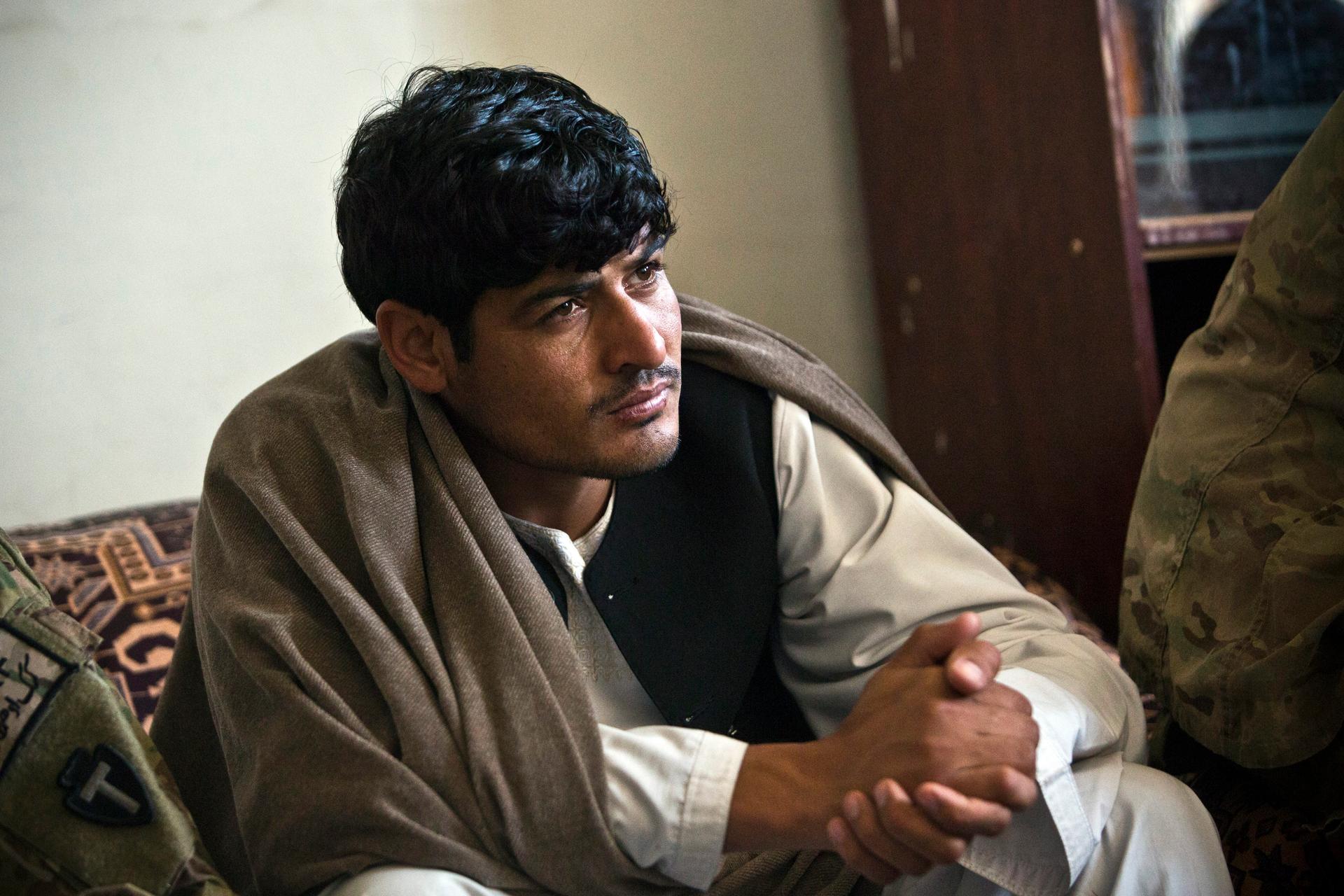
Surviving an uncertain future
Surviving from one day to the next sometimes feels like a miracle for Kamran and his family. As things only get harder, Kamran has thought of turning himself over to the Taliban or police in Pakistan to protect his family, but he knows they’ll still face risk without him. “Life for the interpreter is just a problem. Life is very good, life is a nice thing, it was a gift from the Gods to everyone, but for the interpreter, it is a problem,” Kamran said.
The overarching message from translators is this: They just want their families to live in safety. They supported the US military to help their own countries, but now their lives are at risk.
“I am tired of the life now, but it is just taking care of the kids,” he said. “I should be alive for these kids and do something for them, because if I am not alive, what will they do? They are four girls. What will they do, where will they go?”
Our coverage reaches millions each week, but only a small fraction of listeners contribute to sustain our program. We still need 224 more people to donate $100 or $10/monthly to unlock our $67,000 match. Will you help us get there today?
